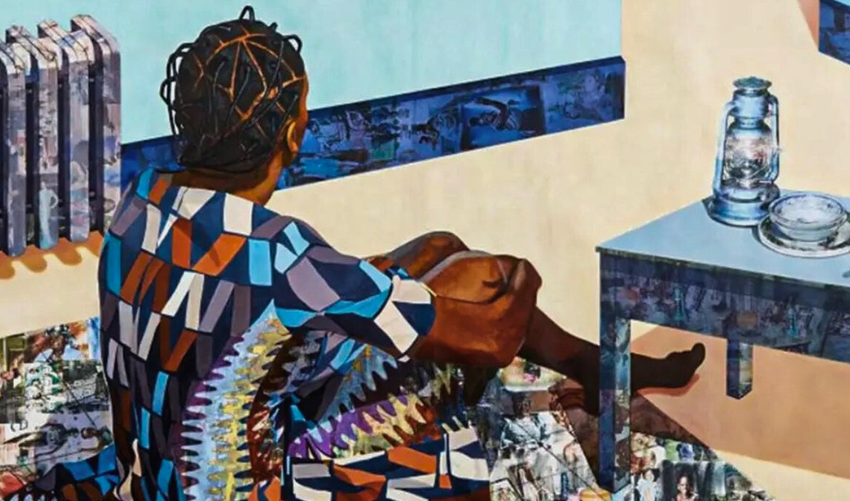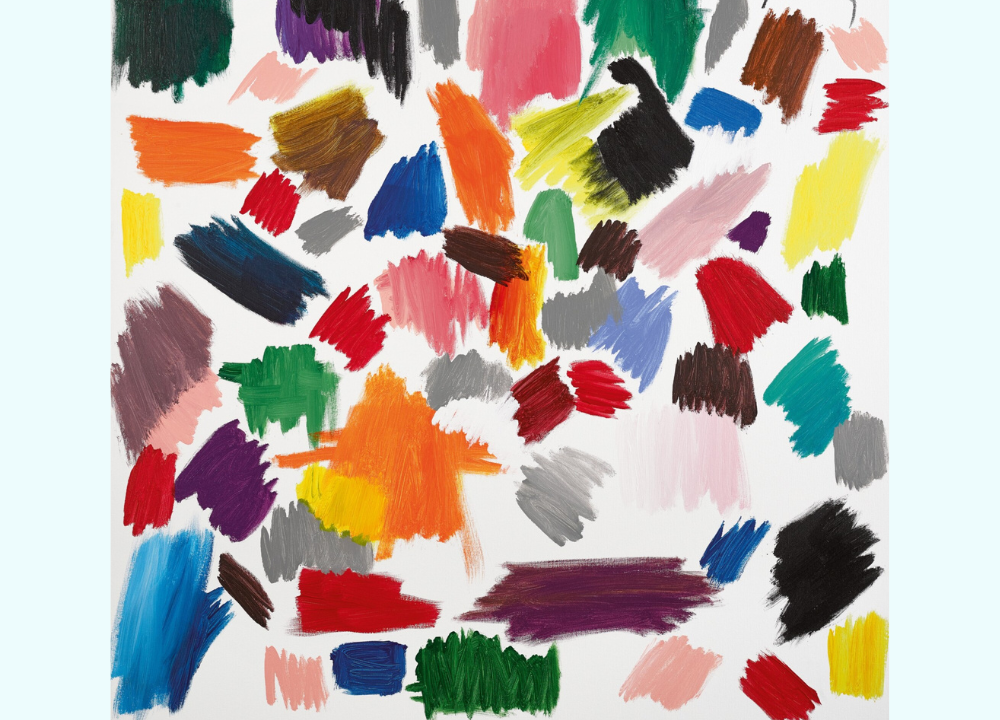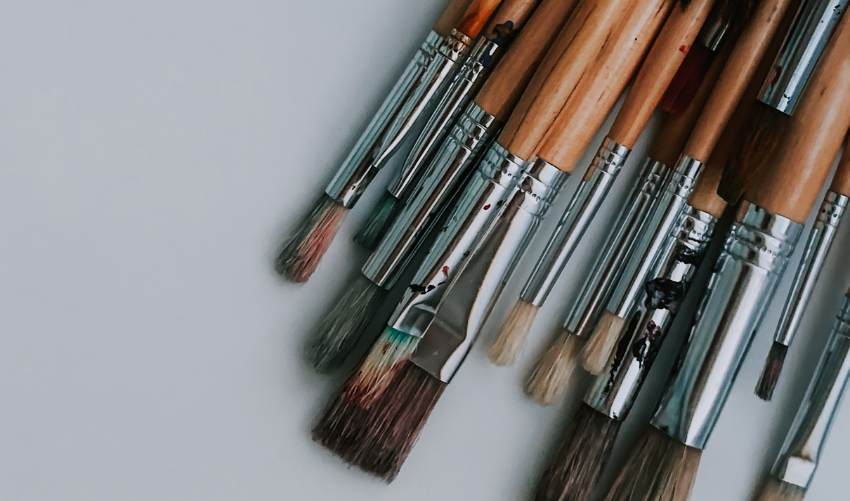Have you ever encountered a piece of art that speaks directly to your soul? “Untitled (I Still Face You)” by Njideka Akunyili Crosby does just that.
This captivating artwork invites you to explore themes of identity, belonging, and the complexities of cultural heritage. As you gaze upon it, you might find yourself reflecting on your own experiences and connections.
Artist Background
Njideka Akunyili Crosby is a prominent artist known for her vibrant works. Her piece, Untitled (I Still Face You), reflects her rich cultural background. Understanding her journey helps us appreciate her art more deeply.
Early Life
Njideka was born in 1983 in Enugu, Nigeria. Growing up in Nigeria shaped her views and artistic style. She moved to the United States for her education.
Education
Crosby studied at:
- Swarthmore College, Pennsylvania – Bachelor’s degree in Fine Arts
- Yale University – Master of Fine Arts
Her education helped her blend different cultures into her art.
Artistic Influences
Crosby’s work is influenced by:
- Nigerian culture and traditions
- Western art techniques
- Personal experiences and memories
These elements create a unique style that tells powerful stories.
Current Work
Today, Njideka lives in Los Angeles. She continues to explore themes of identity and belonging. Her art often combines painting and collage. This mix creates depth and texture, engaging viewers in her world.
Acknowledgments
Crosby has received numerous awards, including:
| Award | Year |
|---|---|
| Frieze Artist Award | 2018 |
| Gordon Parks Foundation Fellowship | 2019 |
Her recognition highlights her impact in the art world.

Artistic Style
The vibrant colors and intricate details draw viewers in. The mix of materials creates depth. Her style is a conversation between tradition and modern life.
Mixed Media Techniques
Akunyili Crosby uses mixed media techniques to create her art. These techniques combine different materials and styles, which makes her work stand out. She often uses:
- Collage
- Painting
- Drawing
- Photography
In “Untitled (I Still Face You),” she layers these elements. This layering adds texture and complexity. The collage aspect includes various patterns and images. These images often come from magazines and personal photographs. This technique tells a story. It connects her past to her present.
Here is a table showing her mixed media elements:
| Technique | Description |
|---|---|
| Collage | Combines different images and textures. |
| Painting | Uses vibrant colors to express emotions. |
| Drawing | Enhances details and adds depth. |
| Photography | Incorporates real-life moments and memories. |
This combination creates a rich visual experience. The viewer feels the connection between the layers. Each piece invites exploration and interpretation.
Cultural Influences
Crosby’s work is deeply influenced by her culture. Growing up in Nigeria shaped her artistic vision. She blends African traditions with Western styles. This fusion creates a unique narrative. Her art reflects themes of identity and belonging.
In “Untitled (I Still Face You),” she explores personal and cultural identity. The use of Nigerian textiles and symbols is significant. These elements celebrate her heritage. They also challenge stereotypes about African art.
Key cultural influences in her work include:
- Nigerian history
- Family traditions
- Contemporary life in America
Her art serves as a bridge between two worlds. It connects her past with her present experiences. This connection allows viewers to relate to her journey. Through her work, she encourages dialogue about culture and identity.
Themes In The Artwork
Themes in the artwork highlight the artist’s journey, shaped by her Nigerian roots and life in America. These themes resonate with many, making the artwork both personal and universal.
Identity And Heritage
The theme of identity is central to Untitled (I Still Face You). Njideka Akunyili Crosby explores her Nigerian heritage through vivid imagery. She combines traditional African motifs with Western influences. This mix creates a dialogue between cultures. The artwork reflects her struggle and pride in balancing these identities.
Key points about identity in the artwork:
- Multicultural Influences: The piece shows a blend of Nigerian and Western styles.
- Personal Connection: Crosby uses her own experiences to express identity.
- Visual Symbols: Each element represents a part of her heritage.
Understanding heritage is crucial in this artwork. It invites viewers to think about their own backgrounds. Here is a simple table showing how identity and heritage are represented:
| Element | Representation |
|---|---|
| Color Palette | Nigerian cultural vibrancy |
| Patterns | Traditional African textiles |
| Imagery | Personal memories and stories |
Memory And Nostalgia
Memory and nostalgia play vital roles in Crosby’s artwork. Untitled (I Still Face You)evokes feelings of longing and connection. The artist captures moments from her life in Nigeria. These memories shape her identity and artistic expression.
The artwork creates a sense of nostalgia through its visual storytelling. It reflects on childhood experiences and family ties. Viewers can feel the warmth of shared moments. Here are some key aspects of memory in the piece:
- Emotional Resonance: Each image stirs personal memories.
- Family Portraits: They symbolize connections to loved ones.
- Everyday Scenes: Ordinary moments become extraordinary memories.
This blend of memory and nostalgia invites reflection. It encourages viewers to connect their own experiences to the artwork. The artwork’s beauty lies in its ability to evoke deep emotions. It reminds us of the importance of remembering our roots.
Visual Elements
The visual elements play a vital role in conveying the message. They invite viewers to explore deeper meanings. Let’s examine the color palette and composition in this artwork.
Color Palette
The color palette of Untitled (I Still Face You) is vibrant and rich. It blends warm and cool tones. This mix creates an emotional impact. The artist uses colors to express feelings and experiences.
- Warm Colors: Reds, oranges, and yellows dominate parts of the piece. They evoke warmth and familiarity.
- Cool Colors: Blues and greens provide balance. They add calmness to the overall mood.
- Earth Tones: Browns and creams ground the composition. They connect the viewer to the artist’s roots.
The use of color also highlights key elements in the artwork. Certain areas draw attention through bright hues. This technique guides the viewer’s gaze. The colors resonate with the themes of identity and belonging.
| Color Category | Emotion or Meaning |
|---|---|
| Warm Colors | Familiarity and warmth |
| Cool Colors | Calmness and balance |
| Earth Tones | Connection to roots |
Overall, the color choices in this artwork create a vivid experience. They enhance the emotional depth. Viewers feel a connection with the themes presented.
Composition And Layout
The composition of Untitled (I Still Face You) is complex and layered. Njideka Akunyili Crosby skillfully arranges elements to tell a story. The layout encourages exploration and reflection.
Key aspects of the composition include:
- Layering: The artwork features multiple layers. This technique creates depth and invites viewers to look closer.
- Figures and Portraits: Central figures capture attention. They reflect the artist’s personal experiences.
- Negative Space: The use of space is intentional. It allows the viewer to breathe and think.
The layout also balances various elements. The placement of figures, objects, and patterns creates harmony. This balance enhances the visual narrative.
In summary, the composition and layout work together. They guide the viewer through the artwork. Each element supports the themes of identity and connection.
Personal Narrative
This piece reflects her experiences, struggles, and connections. It captures her journey as an artist rooted in Nigerian culture while navigating life in the United States. The artwork reveals her thoughts and feelings, making it deeply personal yet universally relatable.
Connection To The Artist’s Life
Crosby’s life story is integral to understanding her work. She blends memories of Nigeria with her present. Her art speaks to her identity as an immigrant, a theme evident in Untitled (I Still Face You). The piece showcases her connection to family and heritage.
- Nigerian Roots: Crosby grew up in a rich cultural environment.
- Art Education: She studied at prestigious schools in Nigeria and the U.S.
- Influence of Family: Family traditions shape her artistic vision.
The artwork features familiar symbols and colors from Nigeria. These elements remind her of home. Each brushstroke is a tribute to her past. The vibrant imagery represents her emotions and experiences. The piece allows viewers to glimpse her journey.
| Element | Significance |
|---|---|
| Color Palette | Reflects Nigerian culture and traditions |
| Imagery | Represents personal memories and connections |
| Composition | Blends past and present experiences |
Reflections On Diaspora
Crosby’s work also explores themes of diaspora. The term refers to people who live outside their home country. Her art captures the feelings of longing and nostalgia. Untitled (I Still Face You)portrays the tension between two worlds.
- Identity Crisis: Many diaspora artists face challenges in defining their identity.
- Belonging: The struggle to feel at home in a new place.
- Cultural Fusion: Mixing elements from both cultures.
Through her art, Crosby expresses these complex feelings. She invites viewers to reflect on their own experiences. The artwork resonates with anyone who has lived between cultures. It speaks of the beauty and pain of the immigrant experience.




